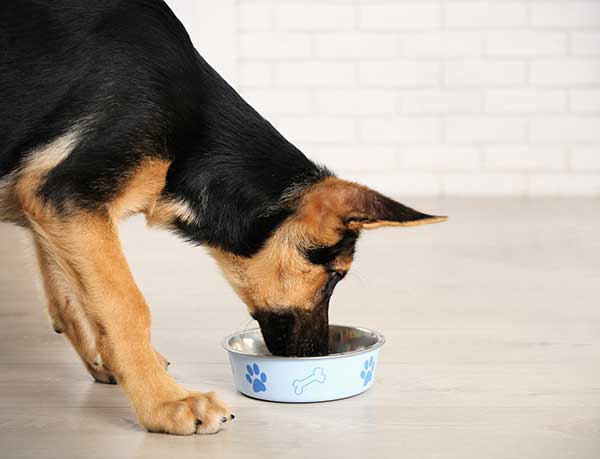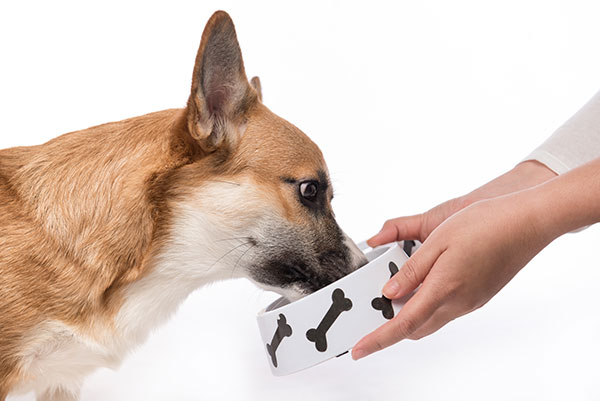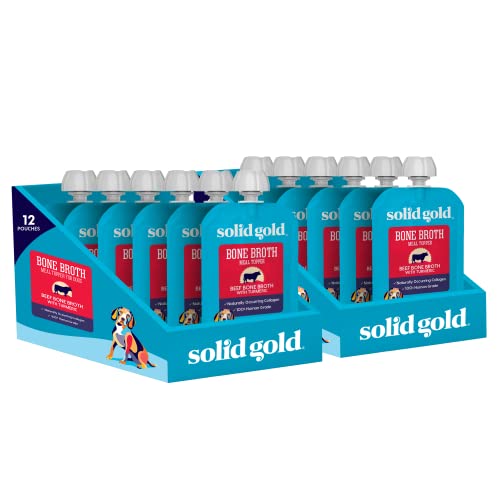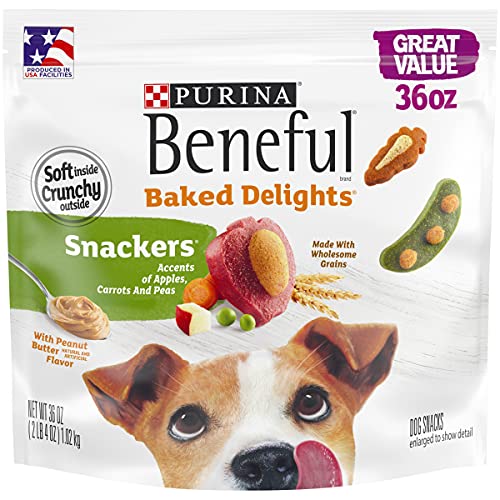Dogs are a big fan of veggies. Many dogs have a soft spot for fruits too. That’s a great thing, considering that fruits and vegetables are rich in beneficial nutrients, including essential vitamins and minerals, as well as powerful antioxidants.
But as you might already know, not all fruits and vegetables are considered safe for dogs. That underscores the importance of checking with your vet before introducing any plant-based foods to your canine friend.
Now, eggplant is a common vegetable on many kitchen shelves around the world. That makes it a popular household good that dogs potentially interact with. But can dogs have eggplant?
The quick answer is yes. Eggplant is just one of the many vegetables that dogs can safely eat. Not only is eggplant non-toxic to dogs. The vegetable also boasts numerous nutrients that your pooch might enjoy, including disease-combatting antioxidants.
Can my dog eat eggplant then?
Again, your dog can safely eat eggplant. However, as with any fruit and vegetable, eggplant will only be safe for your dog in moderation. The vegetable should be fed only as an occasional treat. Although it’s largely safe, eggplant contains certain compounds that could induce poisoning if overfed to dogs. So, there’s a lot to know before giving your dog eggplant.
Read on for a definitive guide into dogs and eggplant. Some of the areas the post shall cover include the potential health and nutritional benefits of eggplant for dogs, adverse effects to watch out for, and how best to serve this vegetable to your canine friend.
What Is Eggplant?
Eggplant is a vegetable that goes by several other names, depending on where it’s cultivated. The name ‘eggplant’ is generally used in the United States, Australia, New Zealand, and Anglophone Canada.
In the United Kingdom, Ireland, and Quebec, the plant is widely known as aubergine. Brinjal is another popular name for the eggplant. This name is more commonly used in the Indian subcontinent, Malaysia, Singapore, and South Africa.
Eggplant also goes by the taxonomic name Solanum melongena. The vegetable belongs in the nightshade family Solanaceae. This is the same family that produces tomatoes, potatoes, and chili pepper.
Notable Features
Aubergine comes in different varieties and colors. However, purple is the most common eggplant color. More on this later on.
In terms of texture, eggplants are spongy and absorbent.

Applications
Eggplants are typically used as a vegetable. However, it’s worth noting that aubergine is technically a berry.
Various parts of the eggplant are edible. That includes the skin, flesh, and even seeds.
Raw eggplants are bitter and contain a bit of astringent quality. But once cooked, the vegetable can become delectably flavorful.
Eggplant’s sponginess and absorbent nature make it remarkable at absorbing oils and flavors during cooking, further enhancing its taste.
Due to its rich texture and sheer bulk, the vegetable is occasionally used as the primary meat substitute in vegan diets.
Cooking Methods
Eggplants meant for human consumption can be prepared using a variety of cooking methods. Examples include boiling, steaming, stir-frying, deep-frying, baking, barbecuing, and roasting.
The vegetable can also be picked, curried, or stewed. Although frequently cooked with oil or fat, eggplant can also be prepared without fat.
Now that you’re well-acquainted with what an eggplant is, you’re probably wondering, is eggplant safe for dogs?
Eggplant is safe and even potentially beneficial for dogs. But before you share this vegetable with your adorable pooch, you’d do well to understand all its benefits and possible adverse effects.
- Immune Booster Support – These chewables utilize probiotics for more than just digestion. This complex also promotes a boost of immunity to give your…
- Nature Inspired Gut Health – Ancient Elements Probiotic Bites are delicious soft chews with premium ingredients and an ancient base of quinoa, millet,…
- Featuring DE111 Probiotic – These powerful pet supplements include DE111, a premium Bacillus subtilis probiotic that has been clinically studied for…
Last update on 2024-12-19 / Affiliate links / Images from Amazon Product Advertising API
Is Eggplant Healthy For Dogs?
The best way to answer this question is by looking at eggplant’s nutritional profile.
Now, a 100-gram serving (approximately 3.5 ounces) of raw eggplant boasts the following nutritional value;
- Energy – 104 kilojoules (25 kilocalories)
- Water – 92.0 grams
- Protein – 1.0 gram
- Carbohydrates – 6.5 grams
- Sugars – 3.5 grams
- Fiber – 3 grams
- Fat – 0.2 grams
- Vitamin B1 (Thiamine) – 0.039 milligrams (mg), representing 3% of the recommended daily value (RDV)
- Vitamin B2 (Riboflavin) – 0.037 mg, representing 3% of the RDV
- Vitamin B3 (Niacin) – 0.649 mg, representing 4% of the RDV
- Vitamin B5 (Pantothenic acid) – 0.281 mg, representing 6% of the RDV
- Vitamin B6 – 0.084 mg, representing 6% of the RDV
- Vitamin B9 (Folate) – 22 micrograms (μg), representing 6% of the RDV
- Vitamin C – 2.2 mg, representing 3% of the RDV
- Vitamin E – 0.3 mg, representing 2% of the RDV
- Vitamin K – 3.5 μg, representing 3% of the RDV
- Manganese – 0.232 mg, representing 11% of the RDV
- Potassium – 229 mg, representing 5% of the RDV
- Magnesium – 14 mg, representing 4% of the RDV
- Phosphorus – 24 mg, representing 3% of the RDV
- Iron – 0.23 mg, representing 2% of the RDV
- Zinc – 0.16 mg, representing 2% of the RDV
- Calcium – 8 mg, representing 1% of the RDV
It’s worth noting that the above recommended daily values are based on the human consumption of eggplants. But does the same apply to dogs? Can dogs eat aubergine?
Although we’ve already mentioned it quite a few times, it warrants repeating that dogs can safely eat aubergine in moderation. Small servings of eggplant may supply your canine friend with most (if not all) of the above-mentioned nutrients.

The following are a few ways your dog may benefit from an occasional eggplant treat;
1. Aiding Digestion
Eggplant is loaded with dietary fiber. 3 grams out of every 100 grams of raw eggplant is fiber. The roles of fiber-rich foods in aiding digestion are well-documented.
Fiber mainly supports your dog’s digestion in two ways.
First, it nourishes his gut microbiome. Gut microbiome are the microscopic organisms that live through an animal’s alimentary canal, which enhance food digestion and metabolism. Studies have shown that a healthy balance of these organisms might reduce the risks of certain metabolic disorders.
Fiber also adds bulk to stool. Bulkier stools translate to more regular bowel movements. And the more frequently your dog empties his bowel, the less likely he will develop digestive issues like constipation.
2. Supporting Weight Loss and Rehydration
Eggplant shares numerous features with tomatoes, its cousin within the nightshade family. One such feature is an abundance of water. A 100-gram serving of raw brinjal boasts as many as 92 grams of water.
Incorporating eggplants into your dog’s regular diet is an ingenious way of increasing the animal’s water intake. This might help to combat dehydration.
But that’s not all. Water and fiber are also famous for their remarkable filling effects. In other words, these compounds can induce a sense of fullness faster while also maintaining those sensations for longer.
Therefore, supplementing your dog’s diet with eggplant is a perfect way to minimize the food portions the animal can finish in one sitting. This can help to combat unintentional weight gain resulting from overeating.
- Works as a dog food topper – For pet parents looking for an alternative to capsules, raw treats, or soft chews, all it takes is a few pumps of Salmon…
- A tasty & body nourishing treat for cats & dogs – Essential fatty acids for a healthy coat.
- Powerful Omega Fatty Acids – This premium fish oil liquid formula is loaded with the healthy Omega-3 fatty acid (with epa and dha) to support health…
Last update on 2025-01-15 / Affiliate links / Images from Amazon Product Advertising API
3. Protection Against Chronic Diseases
Eggplants are incredibly high in antioxidants.
Antioxidants are compounds that fight oxidative stress – a phenomenon caused by the over-accumulation of free radicals in the body.
Free radicals are molecules resulting from various metabolic processes. Most of these molecules are eliminated through the body’s numerous self-detoxing mechanisms. However, too many free radicals can increase susceptibility to disease.
Fortunately, aubergine is chockfull of antioxidants. Anthocyanins are a common antioxidant in eggplant known to guard against various chronic illnesses, such as cancer and heart disease. One anthocyanin called nasunin has proven particularly effective against free radicals.
Other popular antioxidants in eggplant include solasodine rhamnosyl glycosides (SRGs) and chlorogenic acid.
Remember that in addition to these three major benefits, eggplant contains scores of other vitamins and minerals that could help your dog in many ways.
Are Eggplants Good For Dogs?
We’ve just pointed out some potential health benefits of eggplant for dogs. Going by the above-reviewed benefits, you might find yourself wondering, is eggplant good for dogs?
Eggplants are good for dogs. At least based on the vegetable’s nutritional profile.
Giving your dog eggplant might help with digestive issues like constipation and upset stomach. Aubergine is also recommended for fastidious drinkers. Besides, the vegetable can help reduce unintentional weight gain. Not to mention its powerful antioxidants that might fight off chronic illnesses.

Is eggplant ok for dogs then?
Since eggplants are generally good for dogs, it goes that these veggies are also okay for your pooch. However, remember to observe the cardinal principle of moderation.
It’s recommended to give your dog small aubergine supplements as an occasional treat. As you’re about to find out, too much of this vegetable might trigger several adverse effects.
Risks of Eggplant for Dogs
1. Oxalate Poisoning
Oxalates are compounds in many plant species. However, certain vegetables, such as spinach, leeks, Swiss chard, rhubarb, beets, and aubergine, contain relatively high levels of oxalates.
High exposure to oxalates has been shown to be harmful to dogs. These compounds are particularly risky for dogs with a history of arthritis or kidney health problems.
But what exactly makes oxalates poisonous to dogs?
Oxalates are infamous for blocking the absorption of calcium in the bloodstream. These compounds can lead to unwanted calcium deposits in the body, resulting in conditions like kidney stones.
A slow rate of calcium absorption may also reflect negatively on your dog’s bones. Remember that calcium is the primary mineral that constitutes bones and teeth. A deficiency in this mineral could lead to degenerative bone diseases, including canine osteoarthritis and osteoporosis.
However, oxalate poisoning is never an issue for healthy dogs. Besides, the nutritious properties of eggplant far outweigh its potential oxalate issues.
- One (1) 25 lb bag of ACANA Grain Free* Meadowland Recipe Dry Dog Food
- High protein dog food recipe features 70 percent** high-quality animal ingredients and 30 percent*** wholesome fruits, vegetables and nutrients
- A freeze dried dog food coating adds rich flavor dogs crave
Last update on 2024-12-19 / Affiliate links / Images from Amazon Product Advertising API
2. Solanine Poisoning
Solanine is another compound present in most members of the nightshade family, which might be harmful to dogs.
Solanine acts as a natural pesticide, contributing to the healthy growth and development of nightshade plants. However, this alkaloid can trigger a host of adverse effects in dogs. In fact, studies have shown that high consumption solanine might even be harmful to humans.
Common symptoms of solanine toxicity include;
- Nausea and lack of appetite
- Severe GI upset, often marked by vomiting and diarrhea
- Constipation, resulting in flatulence and severe abdominal pain
- Weakness
- Throat irritation
- Dehydration, resulting from vomiting and diarrhea, and usually marked by dry eyes or mouth
- Hypersalivation – excessive drooling
- High or low heart rate
- Fever
- Fatigue
- Drowsiness
- Slow reflexes
- Behavioral changes, such as withdrawal, pacing, aggression, or non-active demeanor
The saving grace, however, is that solanine is more abundant in eggplant skin and leaves. The aubergine fruit contains minimal amounts of this chemical. So, the risks of solanine toxicity in dogs are remarkably low if you only feed your dog eggplant flesh.

3. Iron Deficiency
Remember what we mentioned about nasunin being one of the powerful antioxidants in eggplant? Well, it turns out that this compound has a dark side too.
Nasunin absorbs iron from blood cells. Therefore, it can trigger iron deficiency.
4. Blood Sugar Issues
Eggplants contain a significant amount of sugar – about 3.5 grams for every 100-gram serving of the vegetable.
That may not sound like much if viewed from a human standpoint. However, remember that dogs do not need sugar in their diet. And 3.5 is already way too high for them.
High-carb diets like aubergine can mess up your dog’s blood sugar levels, opening him up for type II diabetes and a host of cardiovascular diseases.
5. Allergic Reactions
Dogs are omnivores, which implies that they can safely consume a diet comprising both plant- and animal-based products.
But unlike humans who can thrive exclusively from a vegan diet, dogs require more meat than veggies in their meals. That explains why there are always allergic reactions to expect when giving fruits and vegetables to dogs.
Here are a few symptoms of eggplant allergy in dogs;
- Gastrointestinal issues like vomiting, upset stomach, constipation, and diarrhea
- Skin problems like a rash, itchiness, and swelling
- Respiratory symptoms like coughing, sneezing, and wheezing
The risks of eggplant for dogs depend on the portions served. It also depends on your dog’s tolerance for this vegetable. Dogs eating eggplant for the first time will undoubtedly experience more severe adverse reactions than those already familiar with the vegetable.
Other factors like your dog’s age, breed, activity levels, metabolic rate, and general health condition also determine how severe the side effects of eggplant allergy will be.
The good news is that, unlike tomatoes, eggplant allergies are less common. And even if they occur, the symptoms are likely to be less severe.
- SUPERFOOD INGREDIENTS – This dog bone broth is crafted with carrots, sweet potatoes, apples, pumpkin, and ginger to help promote gut health and…
- SLOW-SIMMERED BONE BROTH – Your pup will love the rich aroma and taste of this slow-simmered bone broth that promotes healthy hydration and provide…
- NATURALLY OCCURRING COLLAGEN – Rich in natural collagen from beef bones, collagen is an essential protein that promotes healthy skin and nails while…
Last update on 2025-01-13 / Affiliate links / Images from Amazon Product Advertising API
Is Eggplant Toxic to Dogs?
It’s always prudent to weigh the benefits and risks of any vegetable before feeding it to your pets. Fortunately, we’ve now looked at both the pros and cons of eggplant for dogs.
But you could still be wondering – is eggplant poisonous to dogs?
Eggplant isn’t inherently harmful to dogs if fed in moderation. However, overconsumption of this vegetable could lead to oxalate poisoning, solanine poisoning, and several other negative reactions.
Is eggplant bad for dogs then?
Eggplant is non-toxic to dogs if consumed sparingly. Like most vegetables, aubergine is only bad for your pooch if overfed. Again, this underscores the importance of feeding brinjal to your canine friend only in moderate portions.
Raw versus Cooked Eggplant for Dogs
Upon reviewing the pros and cons of eggplants for dogs and determining that the benefits far outweigh the drawbacks, your next question is whether to feed this vegetable to your dog raw or cooked.
But can dogs eat raw eggplant?
Yes, dogs can comfortably eat raw eggplant.
The biggest benefit of feeding raw aubergine to your pooch is that the vegetable retains most of its minerals and vitamins, particularly those that would easily be destroyed by heat. So, from a nutritional standpoint, eggplants are better served to dogs raw than cooked.
All you need to do is wash the vegetable and then peel it to reduce the risks of solanine poisoning. Next, slice the eggplant into small, bite-size portions and serve it to your dog in moderate amounts.
Can dogs eat cooked eggplant too?
It’s undeniably true that raw eggplant retains most of its nutritional elements than its cooked form. However, your dog will unlikely enjoy the taste and texture of raw eggplant. And that could make this vegetable highly unappealing for your pooch. Therefore, you’re better off cooking eggplant before feeding it to your dog.
The good news is that there are various ways to cook eggplant. But the bad news is that only a few cooking methods are recommended if planning to share the vegetable with your dog.
Let’s go over a few popular aubergine cooking methods and see which ones will suit your canine friend best;
Can Dogs Eat Boiled Eggplant?
Dogs can safely eat boiled eggplant. Boiling is preferred as it helps retain most of the nutrients in the vegetable.
Can Dogs Eat Steamed Eggplant?
Steaming shares one thing with boiling – they both help retain most of the minerals and vitamins in aubergine (and any other food for that matter). Therefore, steaming is another healthy way to cook eggplant for dogs.
Just remember to prepare the vegetable without salt, fat, and spices.
Salt may be a popular condiment used in flavoring human foods. But exposure to too much salt can trigger sodium-ion poisoning in dogs, a condition that could take a toll on your dog’s kidneys.
Fat is also discouraged as it could lead to unintentional weight gain and chronic cholesterol issues.
You also want to stay away from spices like garlic, onion, and peppermint. Garlic and onion have the worst reputation when it comes to spicy foods for pets. These plants contain compounds that can cause a life-threatening condition known as Heinz-body anemia.
Can Dogs Eat Fried Eggplant?
Dogs can eat fried eggplant but they probably shouldn’t. That’s because frying often involves the use of excess fat and oils, none of which is healthy for your pooch.
Can Dogs Eat Roasted Eggplant?
Roasted eggplant is safe for dogs provided that it’s free from salt and harmful spices. However, note that roasting may dry out aubergine, making it difficult for your dog to benefit from the high water content in this vegetable.
That further begs the question, ‘can dogs eat dehydrated eggplant?’
There’s nothing inherently wrong with dehydrated eggplant, provided that it doesn’t contain worrying levels of salt and spices. But feeding dehydrated aubergine to your dog deprives him of the opportunity to enjoy the often-high water content in these veggies. Besides, dry or dehydrated eggplant may present choking risks for your dog.
Can Dogs Eat Grilled Eggplant?
Grilled eggplant is safe for dogs if the vegetable is free from salt and spices.

Can Dogs Eat Pickled Eggplant?
Dogs shouldn’t eat pickled eggplant. That’s for the simple reason that most pickled foods almost always contain garlic. Even seemingly negligible amounts of this spice might trigger Heinz-body anemia.
Can Dogs Eat Breaded Eggplant?
Dogs can eat breaded eggplant in moderation. Too much breaded eggplant might become toxic to your canine friend. The toxicity of breaded eggplant to dogs normally comes from garlic powder, which is a common ingredient in this food.
Can Dogs Eat Eggplant Parm?
If you prefer preparing your eggplants with dairy products and tend to share this product with your dog, you might have often wondered, can dogs eat eggplant parmesan?
Eggplant parm is loaded with cheese. Unfortunately, dogs shouldn’t eat dairy products for risks of lactose intolerance.
Lactose is the main type of sugar in dairy products. This sugar is processed by an enzyme in the body known as lactase. But like cats, dogs gradually lose the ability to produce the enzyme lactase as they transition from puppies to adults. That makes it unhealthy for them to consume lactose-containing products.
Common symptoms of lactose intolerance include nausea, vomiting, upset stomach, diarrhea, and abdominal pain.
Besides, eggplant parmesan may contain worrying levels of garlic and onion.
Can Dogs Eat Eggplant With Egg?
Dogs can safely eat eggs. Therefore, there’s nothing wrong about feeding eggplant with egg to your dog.
Just ensure the egg is properly cooked to destroy dangerous bacteria like E. coli and Salmonella.
- Made with wholesome grains and peanut butter
- Ideal for training and snacking
- Full of love
Last update on 2024-12-19 / Affiliate links / Images from Amazon Product Advertising API
Are All Eggplant Varieties Safe For Dogs?
Eggplants come in numerous cultivars. These variants depend on two main factors – the vegetable’s color and its country of origin. Let’s go over some of the popular eggplant varieties and determine if they’re safe for dogs;
Can Dogs Eat Japanese Eggplant?
Japanese eggplants are longer and slenderer than traditional eggplants. But despite their phenotypic differences, these aubergines are just as safe and beneficial for dogs as their regular counterparts.
Can Dogs Eat Purple Eggplant?
Most traditional eggplants are purple. And as we’ve already pointed out throughout this post, eggplant is safe for dogs in moderation.
Can Dogs Eat Green Eggplant?
Green eggplants are safe for dogs. However, this aubergine variety tends to retain its bitter taste even after cooking, which makes it potentially unappealing for dogs.
Can Dogs Eat Red Eggplant?
The red eggplant is nearly identical to a tomato. The species is widespread in Rotunda, Italy.
Just like its green cousin, red aubergine is usually bitter when cooked. So, it’s not the best eggplant variety to feed your dog.
Can Dogs Eat Yellow Eggplant?
Yellow eggplants also resemble yellow tomatoes. They’re dense and crunchy but preserve much of their bitter taste. So, your dog probably won’t like this variety.
If you must give your dog green, red, or yellow eggplant, be sure to grill or roast it first.
It’s also worth noting that some purple eggplants may turn yellow if overripe or overexposed to the sun. Overripe aubergines aren’t safe for dogs either.

What About Eggplant Parts?
Another important question you’d want to settle before giving your dog eggplant is regarding the safest parts of the plant to consume. If viewed as a fruit, eggplant consists of skin, flesh, and seeds. Plus, there are various other parts of the aubergine plant that you could be tempted to share with your dog.
Can Dogs Eat Eggplant Skin?
Eggplant skin contains significant levels of solanine; hence, is potentially toxic to dogs. The skin is also worryingly high in fiber. Too much fiber can produce a laxative effect in dogs, inducing diarrhea.
Can Dogs Eat Eggplant Leaves?
Eggplant leaves are also high in solanine. Plus, the leaves present higher choking hazards. So, dogs should not eat eggplant leaves.
Can Dogs Eat Eggplant Vine?
Aubergine vine isn’t safe for dogs either. That’s mainly due to the choking risks involved.
Can Dogs Eat Eggplant Seeds?
Eggplant seeds may be lower in solanine than eggplant leaves. However, the seeds also present choking hazards to dogs.
How Much Eggplant is Safe for Dogs to Eat?
This is a common question for dog owners who delight in sharing aubergine with their canine friends.
Unfortunately, there’s no standard measure on the right amount of eggplant to give your pooch. The conventional wisdom is to begin small and work your way up in small increments. Observe the dog over 24 hours for any adverse effects before increasing the portions.
Can dogs eat a little piece of eggplant then?
Yes, moderation is the cardinal rule when learning how to feed eggplant to your dog. eggplant can be incredibly beneficial to your dog if served in small amounts but potentially toxic if overfed.

Maybe you’ve always wondered, can eggplant be a treat for your dog?
Again, eggplant should only be served to dogs as an occasional treat.
Can a Pregnant Dog Eat Eggplant?
Pregnant dogs and their unborn litter can benefit from many of the nutritional elements in eggplant. Most notably folate, iron, and calcium.
However, expecting dogs should consume eggplant in even smaller amounts than normal dogs. That’s because they could suffer more severe adverse effects of eggplant poisoning due to their rather suppressed immunity.
Conclusion
Eggplant is non-toxic to dogs. The vegetable is also loaded with several nutrients that your pooch might benefit from.
But as with most plants in the nightshade family, eggplant contains oxalates and solanine. Both these compounds can prove disastrous to your dog if overfed.
Therefore, always practice moderation while serving eggplant to your dog.
- Contains (4) 12 Ounce Bags Of Grain Free Dog Treats
- Made with real USA-sourced lamb as the #1 ingredient
- No fillers, No Wheat, No corn, No artificial flavors or preservatives
Last update on 2025-01-10 / Affiliate links / Images from Amazon Product Advertising API
Checkout Our Favorite Dog Products
1. BEST PUPPY TOY
We Like: Snuggle Behavior Toy with Heart Beat & Heat Pack – Ideal toy for new puppies.
2. BEST DOG TRAINING PROGRAM
We Like: Doggy Dan The Online Dog Trainer – Stop any dog problem and raise the perfect puppy with The Online Dog Trainer.
3. Best Multivitamin for Dogs
We Like: PetHonesty 10-For-1 Multivitamin – 10 Benefits in 1 Daily Treat – These Multivitamin Snacks combine a well-rounded blend of the most essential vitamins and supplements including glucosamine, probiotics, vitamins and omegas, for dogs’ overall daily health.
4. BEST DOG PUZZLE TOY
We Like: Outward Hound Interactive Puzzle Toy – Every dog loves chasing squirrels at the park. The Outward Hound Hide-a-Squirrel Puzzle Toy gives your dog the same feeling as though he was outdoors chasing live squirrels.
5. Best Calming Treats for Dogs
We Like: FurroLandia Hemp Calming Treats – These soft chews will calm your dog so it can peacefully endure stressful situations, such as long car trips, visiting unfamiliar places, or hearing Thunder. Ideal for all dog breeds & sizes.









